During the Corona closure of our Munich Institute, the MGH invite you to join us on a trip through 200 years of medieval research history: The series “Treasures of the MGH Library and Archive” presents a treasure trove of rare and fascinating items illustrating key moments of our history. Enjoy discovering!
In a paper published in the meeting papers of the Prussian Akademie der Wissenschaften in 1935, MGH president Paul Fridolin Kehr declared that as early as 1917 he had already come to the conclusion „that the Monumenta were in need of a reform from head to foot.“ With his 32-page account of the evolution of the central board of directors as the governing instance of the MGH, the 75-year-old president attempted to explain his motives for supporting the disempowerment of the board. It was „the sum of the earlier observations that I had made and expressed more than 20 years ago, added to 15 years of experience as director of the institution, that convinced me, the longer the more, that a new order was absolutely necessary (...)“ (Kehr, p. 14).
Kehr’s paper offers an interesting perspective on the history of the MGH (pp. 15 ff.), captivating the reader with the elegance of his language and yet leaving us with important questions. Did Kehr really intend to turn the Monumenta into an institituion under authoritarian rule? Was he trying to establish a presidial system that would satisfy the wishes of the new regime (from which the finances also depended)? Was he seizing the opportunity to restructure the governance of the MGH in a way better suited his personality than the system of collective decision-making with the scholarly community? Or did he make his proposals to the Nazi rulers in 1933 and 1934 to forstall plans afoot to completely disband the MGH?
The reorganisation of the MGH was sealed with the issue of a new set of statutes published on April 1 1935 by the Nazi ideologist Bernhard Rust, Reich Minister for Science, Education and National Culture (Wissenschaft, Erziehung und Volksbildung). The MGH were renamed as the „Reichsinstitut für ältere deutsche Geschichtskunde (Monumenta Germaniae historica)“ (the Reich institute for older German history), constituting a counterpart to the „Reichsinstitut für Geschichte des neuen Deutschlands“ (Reich institute for the history of the new Germany), a National-Socialistic history institution founded in 1935. Through the reorganisation, the Academies in Berlin, Vienna and Munich lost their influence over the MGH, which was now directly under the control of Rust’s ministry. Kehr’s paper served thus not just to legitimate his decision (Rader, p. 188), but was also written as a farewell gesture to the Prussian Akademie der Wissenschaften.
For 17 years, from 1919 until 1936, Paul Fridolin Kehr shaped the development of the MGH. Horst Fuhrmann, his seventh successor as president of the institution, valued Kehr for his strategic skill: „With his energy and vision, his suppleness of mind and worldly wisdom, his readiness to make sacrifices, and all the other qualities one could mention, Kehr deserves the credit for bringing the Monumenta through the hardships of the Weimar Republic and the rise of National Socialism, when their very existence was imperiled“ (Fuhrmann, p. 58)
In some of the passages in his text for the Prussian Academy, Kehr seems to be writing his personal legacy (in particular Kehr, pp. 29ff). Looking back at the times of his predecessor, Georg Heinrich Pertz (the first director of the MGH after Freiherr vom Stein), Kehr remarks: „Who could not but note the strange nexus between academic developments and political events?“ He goes on to quote Leopold von Ranke’s appraisal of Pertz: „At the end, he became dull-minded, as some say. But I see that as no reason to not recognise the greatness of his life [work]. He was no genius, but a man of dignity.“ Kehr adds: „For my own person, I would consider myself lucky to be so judged by posterity“ (Kehr, p. 18).
In his letters, Kehr’s position towards the Nazi regime seems deeply ambivalent. Writing to the historian Hans Nabholz on January 4 1934 for example, he forecasts: „With giant strides, we are either heading for a terrible catastrophy, or for a radical reform of our political and social institutions, everywhere and throughout the world.“ (copy in: MGH archive NLB 185)
He concludes his paper to the Prussian academy, however, with more reassuring words: „In the end, less will change than it seems at first glance. For the motto of the Monumenta Germaniae remains the same under the new name „Reichsinstitut für ältere deutsche Geschichtskunde“ just as it was in the very beginning under Stein, and it retains its true and unchanged meaning, all the more in fact in the new form for today and for the future: Sanctus amor patriae dat animum.“ (Kehr, p. 34)
Were these words strategically motivated? Were they his true convictions? – Or are they the expression of an inextricable mixture of factors that we today find hard to understand?
A. Marquard-Mois
Kehr, Paul Fridolin: Die Preussische Akademie und die Monumenta Germaniae und deren neue Satzung. Sonderausgabe aus den Sitzungsberichten der Preussischen Akademie der Wissenschaften, Phil.-hist. Klasse 20 (1935). (PDF)
Printed in: Mittelalter lesbar machen. Festschrift 200 Jahre Monumenta Germaniae Historica, 2019, pp. 191-215.
Learn more about this treasure of the MGH archive in: Olaf B. Rader: Unter Aufsicht des Reichswissenschaftsministers. Paul Fridolin Kehrs Denkschrift für die Preußische Akademie der Wissenschaften 1935, in: Mittelalter lesbar machen. Festschrift 200 Jahre Monumenta Germaniae Historica, 2019, pp. 188-190.



